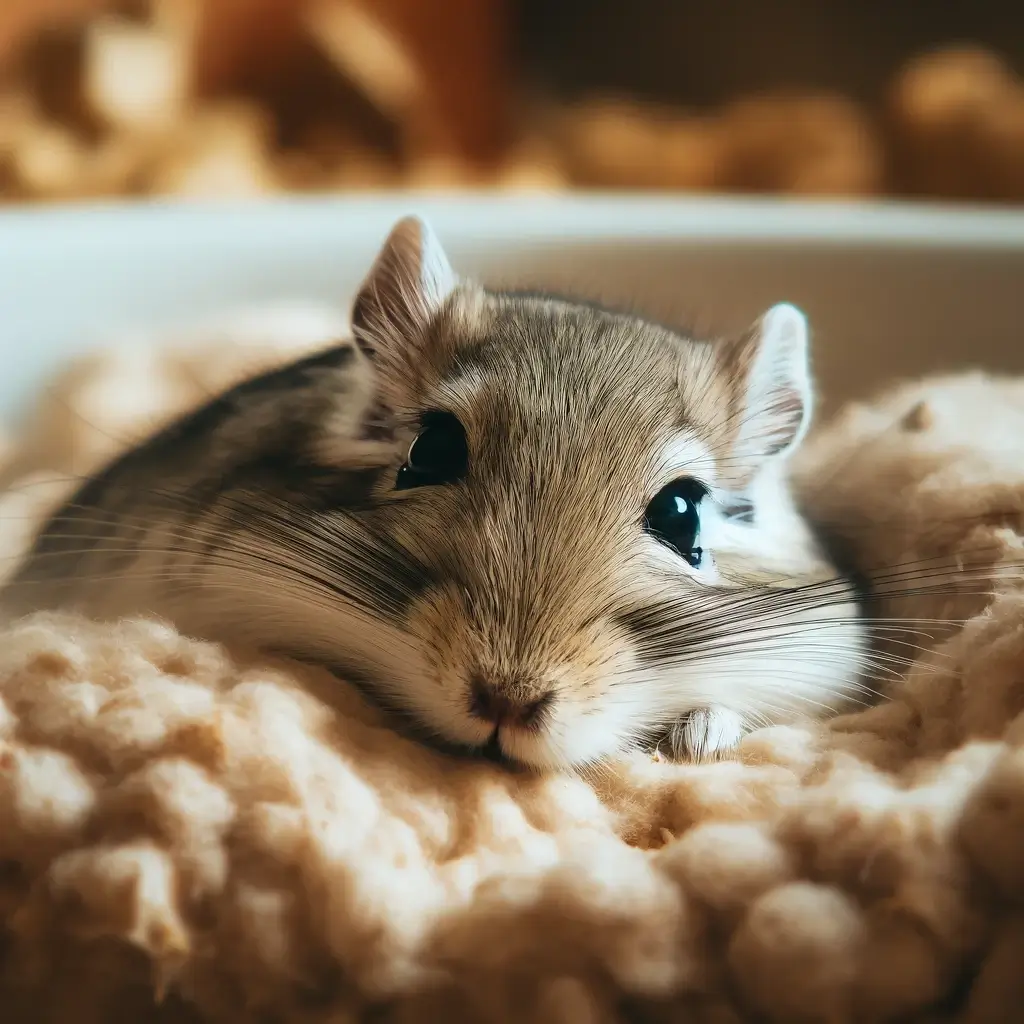Introduction
Gerbils are fascinating creatures that have captivated the hearts of pet lovers worldwide. Known for their curious nature and playful antics, these small rodents make delightful pets. However, like all animals, gerbils are prone to certain health issues, among which respiratory problems are particularly concerning. Recognizing the signs of respiratory distress early can make a significant difference in the outcome for your furry friend. This article aims to equip gerbil owners with the knowledge needed to identify and address respiratory issues, ensuring their pets lead a healthy and happy life.
Understanding Respiratory Problems in Gerbils
Respiratory issues in gerbils can range from mild irritations to severe infections, affecting their quality of life. The respiratory system of a gerbil, much like in humans, is designed for the exchange of oxygen and carbon dioxide. However, due to their small size and specific physiological needs, gerbils can be more susceptible to respiratory problems. Common issues include bacterial infections, such as pneumonia, and allergic reactions to environmental irritants. Understanding these problems is the first step toward ensuring your gerbil receives the care it needs.
Causes of Respiratory Problems
Several factors can contribute to respiratory problems in gerbils, and identifying these is crucial for prevention and treatment.
Environmental Factors
Poor ventilation, high humidity, or excessive dust in the bedding can irritate gerbil’s respiratory system. Exposure to airborne irritants, such as cigarette smoke or strong perfumes, can also trigger respiratory issues.
Infectious Agents
Bacteria, viruses, and fungi present in the environment can cause infections. Gerbils living in crowded conditions or those with weakened immune systems are particularly at risk.
Stress and Its Effects
Stress weakens the immune system, making gerbils more susceptible to respiratory infections. Causes of stress include sudden changes in their environment, handling by humans, and conflicts with cage mates.
Symptoms to Watch For
Early detection of respiratory problems can greatly improve the prognosis for a gerbil. Symptoms to be aware of include:
- Nasal Discharge: One of the first signs of a respiratory issue can be a clear or colored discharge from the nose.
- Sneezing and Coughing: While less common, sneezing and coughing can indicate an irritation or infection of the respiratory tract.
- Difficulty Breathing: Watch for rapid breathing, wheezing, or any changes in breathing patterns.
- Lethargy: A gerbil that is feeling unwell may become less active or show little interest in food or play.
- Puffed-up Fur: Gerbils often puff up their fur when they’re not feeling well, which can be a sign of discomfort or illness.
Preventive Measures
Prevention is always better than cure, especially when it comes to respiratory health in gerbils. Here are key strategies to minimize the risk:
Proper Cage Setup and Maintenance
- Ventilation: Ensure the cage is well-ventilated to prevent the buildup of ammonia from urine and reduce humidity levels.
- Bedding: Use dust-free bedding to minimize irritants. Change the bedding regularly to keep the cage clean and dry.
- Hygiene: Regularly clean the cage and accessories with gerbil-safe products to prevent the growth of mold and bacteria.
Diet and Nutrition
- Balanced Diet: Provide a balanced diet rich in nutrients to support a strong immune system. Avoid sugary and fatty foods that can lead to obesity and health issues.
- Fresh Water: Ensure access to clean, fresh water at all times to keep your gerbil hydrated and healthy.
Stress Reduction Techniques
- Stable Environment: Keep the cage in a quiet, stable location away from direct sunlight and drafts.
- Handling: Handle your gerbil gently and regularly to promote bonding and reduce stress from human interaction.
- Enrichment: Offer toys and activities for mental stimulation and physical exercise to prevent stress and boredom.
Treatment Options
When preventive measures fail, and a gerbil shows signs of respiratory distress, prompt action is crucial. Here’s what pet owners can do:
Home Care Tips
- Isolation: If you have multiple gerbils, isolate the sick one to prevent the spread of disease and to monitor its health closely.
- Humidity: A humid environment can help ease breathing difficulties. Consider using a humidifier near the cage.
- Warmth: Keeping the gerbil warm can help it combat illness. Ensure the cage is in a warm, draft-free area.
When to Use Antibiotics or Other Medications
- Veterinarian Consultation: Always consult a veterinarian before administering any medication. Antibiotics may be prescribed if a bacterial infection is confirmed.
Alternative Treatments and Their Effectiveness
- Supplements: Dietary supplements may support recovery, but their effectiveness can vary. Consult your vet for recommendations.
- Herbal Remedies: Some herbal remedies may relieve symptoms, but their safety and effectiveness for gerbils are not well-documented. Prioritize vet-recommended treatments.
Consulting a Veterinarian
When to Seek Professional Help
If your gerbil exhibits persistent respiratory symptoms or if its condition worsens, seek veterinary care immediately. Early diagnosis and treatment can significantly improve outcomes.
What to Expect During the Visit
The vet may conduct a physical examination, take samples for laboratory testing, and recommend treatment based on the diagnosis.
Importance of Regular Check-Ups
Regular veterinary check-ups can help catch and prevent health issues before they become serious, ensuring your gerbil remains healthy and happy.
In conclusion, respiratory problems in pet gerbils, ranging from mild irritations to severe infections, can significantly impact their well-being and quality of life. However, with a thorough understanding of the causes, symptoms, preventive measures, and treatment options, gerbil owners can take proactive steps to safeguard their pets’ health. Regular cage maintenance, a balanced diet, stress reduction, and vigilant observation for any signs of illness are paramount in preventing respiratory issues. Moreover, consulting a veterinarian at the first sign of trouble ensures that gerbils receive the appropriate care they need to recover. By fostering a healthy environment and being attentive to their pet’s needs, owners can enjoy the companionship of their gerbils for many years to come. Let’s commit to being responsible and informed pet owners, ensuring our gerbils lead a happy, healthy life.









